This year’s Fellows class comprises 10 graduate students from across the country with sterling academic credentials and a demonstrated interest in how legislation and policy affects the pharmacology profession. For the first time in program history, all 10 Fellows will arrive in Washington, D.C. on the same day to hear from legislative staff and scientists in the policy profession, be trained in advocacy by members of ASPET, and speak with their legislators about how to address the challenges facing the scientific community. Additionally, the Washington Fellows will receive complimentary registration to ASPET’s Annual Meeting at Experimental Biology 2019 in Orlando, FL, where they will have the opportunity to network with each other and with Fellows from previous years.
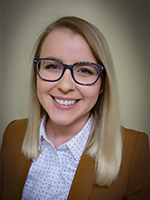 Jami Conley Calderon – University of Central Florida
Jami Conley Calderon – University of Central Florida
Born and raised in Washington, Missouri, Jami graduated with her Bachelor of Science degree in Biochemistry and Microbiology/Cellular/Molecular Biology/Biotechnology from Southeast Missouri State University in 2014. She also served as First-year Student Senator, Secretary, and Chairperson of the Student Issues Committee as part of the Student Government Association throughout her time at Southeast Missouri State University. She is currently pursuing her PhD in biomedical sciences at the University of Central Florida, investigating the role of a dynein mutation in a rare subtype of the peripheral neuropathy known as Charcot-Marie-Tooth disease. As an ASPET Washington Fellow, Jami hopes to meld her passions for science and government by advocating for scientific research, highlighting the importance of science education, and encouraging evidence-based policymaking.
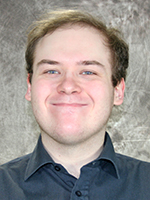 Robert Cassell – Purdue University
Robert Cassell – Purdue University
Originally hailing from the town of Bournemouth in the United Kingdom, Robert received his Bachelor of Science in chemistry with first class honors from Manchester Metropolitan University in 2014, which included thesis work relating to drugs of abuse. Following a brief stint as a private tutor, Robert moved in 2015 to West Lafayette, Indiana to follow his passion and pursue a PhD in medicinal chemistry and molecular pharmacology from Purdue University with a particular interest in neuropharmacology.
Working in the laboratory of Dr. Richard van Rijn, Robert's research has focused on the discovery and development of drugs targeting the delta opioid receptor with the aim of finding new treatments for treating alcoholism, chronic pain, anxiety and depression. Working in addiction research and with a passion for communication, Robert hopes to use his opportunity as an ASPET Washington Fellow to learn how to effectively advocate for rational, science-based solutions for the addiction epidemic and provide accurate education and advice to help dispel the large number of harmful misconceptions currently limiting effective approaches.
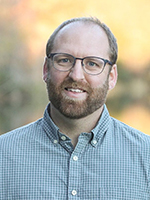 Joseph Flores-Toro – University of Florida
Joseph Flores-Toro – University of Florida
Joe was born in Philadelphia and raised in York County, Pennsylvania. He received his bachelor’s degree in biochemistry and molecular biology from Penn State University. While at Penn State, he cultivated his love of science via participation in academic research and outreach while volunteering in the local community. Following his undergraduate education, he moved to Florida and became a high school science teacher, instructing courses ranging from AP biology to physics. However, the allure of research drew him to graduate school. He is currently pursuing a PhD in biomedical sciences in the Department of Pharmacology and Therapeutics at the University of Florida. Under the mentorship of Dr. Jeff Harrison, his research is focused on developing a new approach for the treatment of glioblastoma by utilizing a novel chemokine receptor inhibitor to unmask efficacy of immunotherapies that have otherwise not worked in glioblastoma. In addition to research, he has remained active in outreach via volunteer work with local school programs, pediatric oncology camps, and the Institute for Learning in Retirement. As an ASPET Washington Fellow, Joe hopes to learn how to leverage his experience as an educator and researcher to effectively advocate for the importance of supporting STEM education and funding biomedical research.
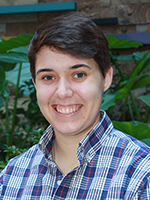 Brittney Garner – University of Arkansas for Medical Sciences
Brittney Garner – University of Arkansas for Medical Sciences
Brittney was born in Louisiana, but grew up in Lake Jackson, Texas. She graduated summa cum laude with Honors from East Texas Baptist University in 2015 with a Bachelor of Science in biology and chemistry. Subsequently, she was accepted into the PhD program of the Department of Pharmacology and Toxicology at the University of Arkansas for Medical Sciences (UAMS). Currently, Brittney is co-mentored by Drs. Nancy Rusch and Shengyu Mu. Her dissertation project focuses on the contribution of the lymphatic circulation to medication side effects and the development of salt-sensitive hypertension. Brittney is a past scholar of a NIH-funded T32 training program in systems pharmacology and toxicology awarded to UAMS by the National Institute for General Medical Sciences. In addition to completing the coursework required of a PhD student, she has obtained a graduate certificate in regulatory sciences from the College of Public Health at UAMS. As an ASPET Washington Fellow, Brittney hopes to expand her knowledge of regulatory science by gaining a deeper knowledge of how science policy decisions are made at the federal and state levels.
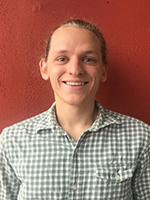 Nicholas Harbin – Emory University
Nicholas Harbin – Emory University
Nicholas grew up in Cullman, Alabama and attained a BS in biochemistry and psychology from Auburn University. During this time, he gained a greater understanding and appreciation for neuroscience and neuropharmacology, with an emphasis in drugs of abuse and neurodegenerative disorders. Currently, Nick is in his second year at Emory University working towards his PhD in molecular and systems pharmacology. Under the guidance of Dr. John Hepler, he is investigating the underlying mechanisms of synaptic plasticity in hippocampal area CA2 and how a regulator of G protein signaling, RGS14, is able to suppress long term potentiation in CA2 pyramidal neurons. Additionally, Nick is working towards developing a small molecule inhibitor of RGS14 that could potentially improve cognitive function in neurological disorders that result in cognitive decline. As an ASPET Washington Fellow, he wants to learn how to effectively reason with legislators to frame policy around evidence-based thinking, and bridge the disconnect between research and public policy.
 Julie Meade – Virginia Commonwealth University
Julie Meade – Virginia Commonwealth University
Julie is from Maryland. She graduated from Vassar College in 2012 with a Bachelor of Arts in Neuroscience & Behavior. She studied dopamine receptor pharmacology for two years in the laboratory of Dr. David Sibley in the Molecular Neuropharmacology Section, National Institute of Neurological Disorders and Stroke, National Institutes of Health. Julie enrolled in a Ph.D. program in the Department of Pharmacology & Toxicology at Virginia Commonwealth University in 2014, where she is mentored by Dr. M. Imad Damaj and co-mentored by Dr. Dana Selley. In fall 2018, Julie received an F31 award from the National Cancer Institute to study the mood-related side effects of cancer chemotherapy in a mouse model. As an ASPET Washington Fellow, Julie wants to learn how to effectively communicate with policymakers about basic concepts in biomedical research and advocate for funding to increase trainees from cognitively diverse backgrounds in STEM fields.
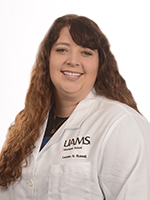 Lauren Russell – University of Arkansas for Medical Sciences
Lauren Russell – University of Arkansas for Medical Sciences
Lauren was born and raised in southern Arkansas. She earned her bachelor’s degree in biology and environmental chemistry from Southern Arkansas University and is currently pursuing a PhD in pharmacology at the University of Arkansas for Medical Sciences. While attending her undergraduate institution, Lauren was involved in establishing the Natural Resource Research Center that eventually contracted with local industries to test water samples. This experience gave Lauren her first exposure to science policy, and building on that interest she received a graduate certificate in regulatory science while in graduate school. Currently, her dissertation work concerns behavioral pharmacology and focuses on assessing the potential abuse liability and behavioral and neurotoxicities associated with novel psychoactive substances. Because of her growing interest in regulatory sciences, Lauren is working on a separate project developing and implementing a survey regarding the effectiveness of medical cannabis. One goal of this survey is to identify and collect quantitative data that will benefit policy makers. As an ASPET Washington Fellow, Lauren hopes to learn more about how public policy decisions are made and how scientists can help influence these decisions so she can effectively advocate for the sciences at both the state and federal level throughout her career.
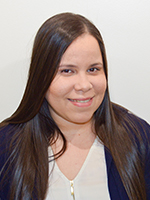 Dianicha Santana – University of Illinois, Chicago
Dianicha Santana – University of Illinois, Chicago
Dianicha was born and raised in Puerto Rico where she earned her BS in biology from the University of Puerto Rico, Humacao Campus. After graduating from college, she completed a post-baccalaureate at the University of Chicago. Dianicha is currently a PhD candidate in the Department of Pharmacology at the University of Illinois at Chicago (UIC) College of Medicine. She previously worked on the characterization of a novel inhibitor of RAS, an elusive target in cancer treatment. Dianicha is currently working in Dr. Yulia Komarova’s lab, investigating the role of the recently discovered mechanosensitive ion channel Piezo1 in regulating adaptive cellular response to mechanical stimuli in the vasculature. In addition to her research, Dianicha is very passionate about advocacy and science outreach. She was a representative for her department at the UIC Graduate Student Council, an organization that allows students to be part of the decision-making of policies at the graduate college. Additionally, she is one of the founders of the Society for Advancement of Chicanos/Hispanics and Native Americans in Science (SACNAS) Graduate Chapter in UIC, an organization that promotes diversity in science. With her background in biomedical science research, she is interested in how science can influence regulatory policies. Through the Washington Fellows program, Dianicha hopes to learn strategies for advocating policy issues such as addressing the increasing public distrust in science. Dianicha’s goal is to acquire tools to better identify the causes of this distrust, promote better communication, and start fixing the barrier between scientists and the public.
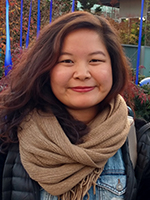 Angela Van – University of California, San Diego
Angela Van – University of California, San Diego
Raised in Anaheim, California, Angela completed her undergraduate work at the University of California, Berkeley in molecular toxicology and molecular environmental biology. She is currently a fifth-year doctoral student in the Biomedical Sciences Graduate Program at the University of California, San Diego. Under the guidance of her advisor, Dr. Alexandra Newton, Angela is currently investigating the role of protein kinase C (PKC) fusion proteins in cancer. Although PKC has been historically regarded as an oncogene, findings in the Newton laboratory revealed a tumor suppressive role for PKC. Angela’s research is focused on biochemically characterizing PKC fusions and determining whether they also support a role for PKC as a tumor suppressor. As a member of the delegation from the Gates Millennium Scholars Program, Angela participated in advocacy efforts with the American Cancer Society Cancer Action Network this past year. Impassioned by this experience, Angela is excited to have the opportunity to learn even more with the ASPET Washington Fellows Program. She believes that it is critical for scientists to communicate effectively with both governing bodies and the greater public, not only as a means for garnering support but also for increasing science literacy. She strives to serve as an advocate for increasing health literacy, especially among disadvantaged populations, promoting policies that encourage preventative strategies and early detection of disease, and most importantly, increasing appropriations for scientific research. Overall, Angela is committed to ensuring that legislators continue to invest in biomedical research for the sake of scientific advancement and for the public good.
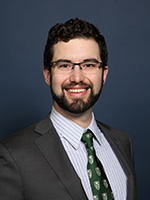 Nicholas Warren – Dartmouth College
Nicholas Warren – Dartmouth College
Nicholas grew up in Vadnais Heights, MN and graduated magna cum laude from the University of Wisconsin-Eau Claire in biochemistry and molecular biology. His undergraduate research in Dr. Sanchita Hati’s laboratory focused on computational protein dynamics of amino acyl-tRNA synthetases. In 2012, he was selected as a summer research fellow at the Mayo Clinic to study insulin supplementation on diabetic mice in the laboratory of Dr. Sreekumaran Nair. He joined Dr. Alan Eastman’s laboratory at Dartmouth College in 2013 to study the molecular mechanisms of checkpoint kinase 1 inhibition in cancer cells for his dissertation. He has found that a single small molecule inhibitor of checkpoint kinase 1 can elicit distinct molecular mechanisms of cytotoxicity depending on the context of DNA damage. Alongside his PhD studies, Nicholas was a founding member and served for three years as President of Dartmouth’s Science, Technology, and Engineering Policy Society. He hopes to promote the use of science to inform policy making and promote funding of critical research to discover new therapies to improve the quality of life for thousands of patients.